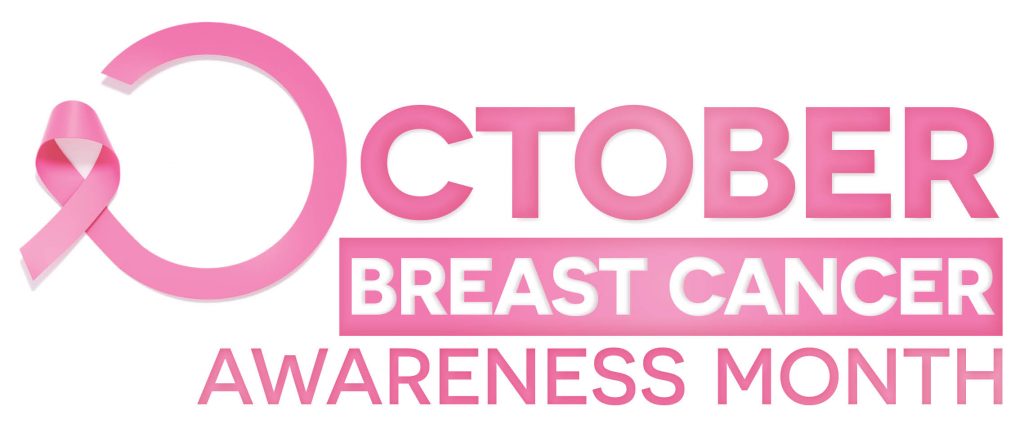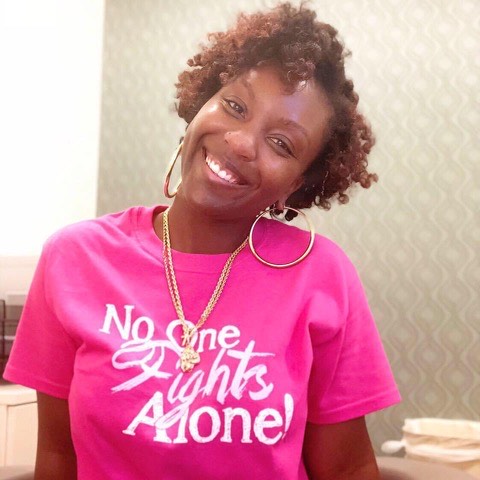
Breast cancer is the most common cancer among American women. Men also experience breast cancer, but it is highly uncommon. About 1 in every 100 men experience breast cancer. Some people have no symptoms at all while others experience unique changes in their breast. Breast cancer mostly affects older women, but can be in women of all ages. Just being born a woman puts you at risk for the disease.
Breast cancer awareness is so important because in the case of early detection, the cancer can be stopped. Breast cancer is the most common cancer there is to date. It can be deadly but is better to catch it in the early stages while it is treatable. October became the month to raise awareness on breast cancer in 1985 and initially started as a week-long campaign. The pink ribbon that symbolizes breast cancer awareness started in 1982 when Susan G. Komen, founder of The Breast Cancer Foundation realized the impact the ribbon symbol had in prior movements like AIDS awareness.
Every year, we see tons of information on breast cancer in the month of October. In fact, over 3 million women are survivors of breast cancer. A big thanks is due to the month of October and how consistent advocates have been with educating the general population on how important it is to check on your boobs! We had the chance to chat with women who have been directly impacted by breast cancer.
The SurTHRIVER
Lyndsay Christian, a journalist, host and media talent who says she is a surThriver of breast cancer. Her advocacy stemmed from an unforgettable journey and she shared some insight with us below.

1. When did you find out you were diagnosed and what symptoms did you experience at first? I felt a sore and tender lump in my right breast and scheduled an exam to meet with my gynecologist. She ordered what was my very first mammogram. I’m under the age of 40, and hadn’t planned on scheduling one for a few more years. After more exams (3-D mammogram, breast ultrasound and biopsy), it was determined that the mass was cancerous. I was diagnosed with Stage 2B, triple-negative breast cancer. It’s an aggressive subtype that affects Black women at a higher rate. Thank God for early detection because it saved my life.
2. What was the process like to cure the disease? There is no cure for breast cancer, but it is treatable if detected early. I underwent an aggressive regimen of chemotherapy (15 rounds) to which the mass in my right breast responded tremendously well. My oncologist described the chemo as “melting the mass away.” I underwent a bilateral mastectomy (removal of tissue in both breasts) and breast reconstruction.
3. How has being a survivor affected your everyday life? The breast cancer diagnosis has strengthened me holistically and has changed my perspective on life. I’m more tuned in to my mental, physical, spiritual and emotional health, and have found my true calling and purpose through my SurTHRIVER (www.surthriver.com) platform!
4. What advice would you give to someone going through the healing process? Keep the faith, pray and power through. It’s a marathon, not a sprint. While going through treatment may seem like an eternity, remember that it’s only temporary. There’s a sparkly light at the end of the tunnel.
The Caregiver
Mariel Huger, a local Durham resident and breast cancer advocate lost a close family member to breast cancer at a young age.

1. What was the relation of the person that passed from breast cancer? My maternal Aunt. Her name is Sheryl and she was years old.
2. Were you educated on the disease prior to your family member being diagnosed? I was not educated on breast cancer beforehand. I hadn’t heard of anyone else being diagnosed with it prior to her passing. This is very common as most women don’t know what symptoms to look out for.
3. How has this affected your view of breast cancer? Cancer is a brutal disease overall. To see someone go through it personally is truly terrifying. She was diagnosed with breast cancer a week before Thanksgiving. She passed away the first week of January. Life happened so fast for her.
4. Is there anything you’ve done to advocate or try to educate others on the seriousness of breast cancer? Since then, I’ve pushed those around me to go to the doctor, even for things that are minor. My aunt thought she had headaches because she would grind her teeth at night but it was actually a symptom of her cancer spreading. She would go to her routine mammograms prior to being diagnosed. In fact, her last mammogram showed no signs of malignancy at all. You literally just have to know your body and listen to it, that’s what I tell everyone that I know. Trust your gut, go to the doctor, don’t skip routine appointments and ask your doctor EVERYTHING. All in all, the fight is ours even if we haven’t been directly diagnosed with breast cancer. Staying up to date on mammograms and educating yourself on symptoms can be the first step to saving your life or someone else’s.
Written by:
Jasmine Tiffany, Journalist
